Most people take great pains to avoid confronting the heartbreaking reality of where our food comes from. Then there are those few who run towards the truth with eyes open. Even fewer somehow manage to find hope amidst the horror. Writer and director Shaun Monson is one of these fewest of the few.
Most people take great pains to avoid confronting the disturbing, horrifying, and heartbreaking reality of where our food comes from, preferring to take comfort in humane labels, shiny packages and slick marketing.
Then there are those few who run towards the truth with eyes open, forever changed by what they see, while even fewer still somehow manage the impossible feat of finding hope amidst the horror. Writer and director Shaun Monson is one of these fewest of the few. [tweet this]
It was his willingness to witness horrors beyond comprehension and his desire to share the truth of humanity’s treatment of non-human animals that culminated in the most iconic and impactful film on animal rights created to date: Earthlings.
Dubbed “The Vegan Maker,” viewing Earthlings has become a defining moment of radical change in so many people’s lives, leading to an instant-enlightenment of sorts, with even the most dedicated meat, dairy and egg-eaters ransacking their kitchens and throwing out every animal product at the film’s conclusion. [tweet this]
Considering its profound impact, not to mention celebrity narration and soundtrack, it’s shocking to learn that Earthlings almost never saw the light of day.
I had the honor of meeting Shaun when we were asked to speak at an all-day vigil with Toronto Pig Save, a grass-roots activism group that bears witness to animals on their way to slaughter. This is a most vital and powerful action that every person should experience. The day after the vigil, Shaun was kind enough to make time for an interview.
He first shared about the struggles and roadblocks and initial failure of Earthlings: [tweet this]
“Well I finished [Earthlings] in late ’04 and the beginning of ’05 and I submitted it to 25 film festivals. It was rejected from all of them. Once you start getting your sixth, seventh, eighth, tenth, fifteenth rejection letter you start thinking, ‘is it the subject matter totally or is it maybe not a good documentary film? Maybe it’s not a very good film; people don’t want to watch it.’I remember chatting with Joaquin [Phoenix] and we started scratching our heads going, ‘It’s good, right? We did this right.’ So, we couldn’t understand it.
It really broke me and it took about two years, and it started in Brazil–I remember it was in Brazil for some reason. Someone sent a Portuguese translation, a subtitle for it saying, ‘When you make a disc will you please add [these subtitles].’ Which means they must have had a DVD and paused it and re-typed every line he said in Portuguese and at the same time we got one from France, one from Russia, we got one in Arabic, we got one in Hindi – they began to come in in 2007 or 2008.
I began to see it sort of take off and I thought, ‘This is the same film it was in 2005 not a frame is different, we didn’t market anything,’ And it gave me great hope for humanity that people would sit and look at this horror and begin to watch it.
And they did, so it began to grow from there.”
Securing Joaquin Phoenix as the film’s narrator was no small feat. Initially Shaun was told he wasn’t available, so he pursued other narrators to no avail. Finally, with what he calls “the confidence of ignorance,” Shaun reached out once more to Joaquin’s publicist:
“Joaquin… was my first choice. I started it in ’99 [with] the film. And in 2000 he did a movie called Gladiator, which he was nominated for, it was a big huge film and I loved his voice and I had heard he had been a vegan his whole life and I said, “He’s the narrator.”
[I sent] a VHS tape, because this was probably 2000, maybe early 2001 at this point. I sent a VHS tape and three days later I got a call and she [Joaquin’s publicist] said, ‘Joaquin will meet with you.’ I had a meeting with him, where I think he was probably interviewing me more than me as the filmmaker/director interviewing him. I know that’s what it was, and he said ‘yes.’ And we recorded the next day; we recorded four times after that.”
The second film in Shaun’s Earthlings Trilogy is a documentary called Unity, which features an unprecedented cast of 100 celebrity narrators, a four-fold increase from his original plan of 25, which he felt was necessary to convey the scope of the message. Shaun spoke to the film’s core theme of non-duality, a unifying undercurrent of his work:
“The beauty of these people talking about non-duality, really, or the film’s main theme: ‘no separation based on form.’ We teach love—and that’s what really got to me, the fact that we teach love—the capacity for love and in the same breath: aggression, aggression for these beings.
And I thought, ‘that’s a separation based on form and that’s just like what racism was or sexism or if your thoughts are different.’ It’s all this separation based on form, and then Earthlings, we’re all earthlings—this is the spectrum of form, so ‘not the same but equal’ became our sort of our slogan: not the same but equal.”
Finally, I asked Shaun what initially inspired him to create Earthlings, and what it is that continues to drive him forwards:
“Just like the stuff we saw yesterday [at the vigil] you know. I interviewed Marc Ching recently—he does [activism surrounding] dog meat—and he said something beautiful, he said:
‘You know, there was a time when I was abused as a kid and I wanted someone to come in and save me.’ He said, ‘I was trapped,’ and he didn’t explain it, where he was, but he was in a situation where he needed saving—a human who needed saving when he was too weak—and no one came. So, one thing that drives him is he wants to save [them]. It’s like what we witnessed [at the vigil]—you want to save them.
I don’t get depressed by it. I see horrible, horrible, horrible stuff. A lot of activists get depressed. You filter it, you just filter it. You turn it into fuel, you don’t get angry, you don’t lose your mind.
It’s radical truth. It’s radical truth. We are documentary filmmakers—it’s a non-fiction film, it’s the truth. So you tell the truth and you face the truth, and you dedicate yourself to truth. Not to some comforting fantasy, but to truth.
Because you want to know what’s really happening. That’s part of awakening.
That’s part of why people say, ‘Here’s where my food is coming from, here’s where my clothes come from, here’s where the cleaning products in my home come from, my entertainment,’ what have you.
And you don’t shield yourself from it. You look at it. You face it.
And I find more power in that than negativity or weakness.
I’m encouraged by humanity that they would look at something as awful as Earthlings—buckets of blood—you know, it gives me great hope for people that are willing to turn and look at the truth.
I never anticipated that. Joaquin and I talked about it. It’s literally exceeded all of our expectations, and that speaks so well for people. It’s beautiful.”
Feeling hope for humanity is hard enough even when we’re not confronting the darkest aspects of our culture. But here is this man who’s witnessed the very worst we humans have to offer, yet remains optimistic.
If nothing else, perhaps the fact that this man who films murder can find hope in our willingness to confront these atrocities, is—in and of itself—a reason to have hope. [tweet this]
To find out more about Shaun’s work and to see the powerful films Earthlings and Unity, please visit www.NationEarth.com. You can connect with Shaun on social media via the links below, where you’ll also find links to more information about Toronto Pig Save.
My thanks to Shaun for his time, his witness, his activism, and his monumental contribution to the animals of this world.
If you found hope in Shaun’s message, give the video a like and share it around to help others make the connection.
To help support Bite Size Vegan’s educational efforts, please see the support page.
Now go live vegan, run towards the truth, and I’ll see you soon.
— Emily Moran Barwick


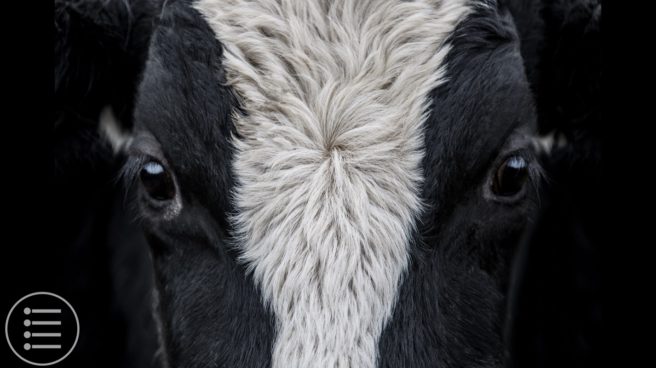
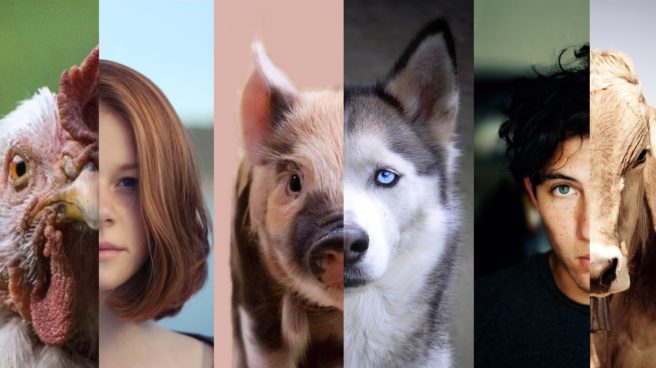
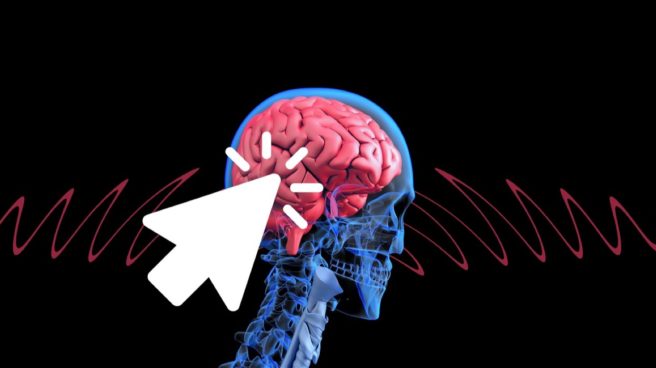
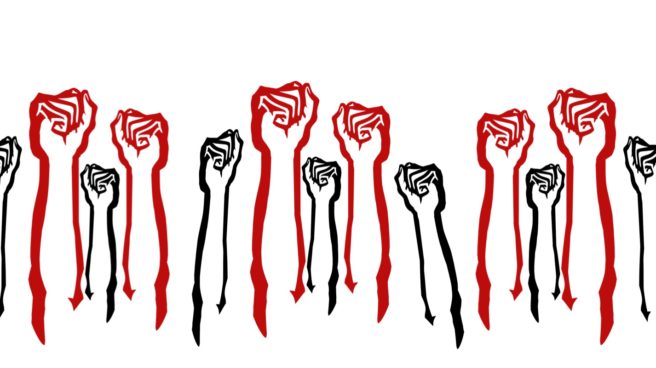
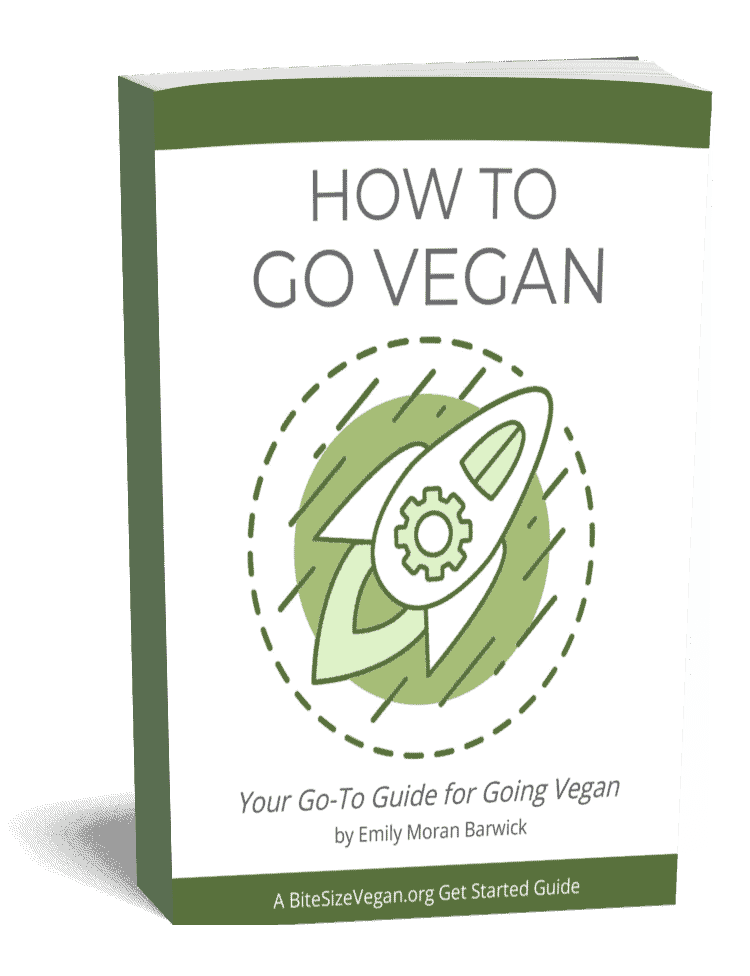
Hi Emily,
My name is René Emmen and I’m from the Netherlands. After a small decade of watching documentaries about food and the food industry (e.g. Food Inc., Forks over Knives, Fat, Sick & Nearly Dead, Cowspiracy, Sugar Coated, etc.) and encountering your Youtube Channel, I decided to go vegan.
I like your videos and the work you put in them, especially your discussions with dr. Michael Greger. Somehow I’m feeling I need to “arm” myself with rationalized arguments to “battle” the remarks of other people I will be getting in the future.
I feel powerful when I think about the fact that most meat-eaters probably don’t kill the animals themselves and will puke their guts out when they have to do it. Kill, skin, de-gut…I bet they don’t really have what it takes to be a so-called “omnivore”. They are more likely scavengers.
Here in the Netherlands we have a supermarket called “Albert Heijn” and every year in springtime you can save for a kitchen garden. With every 10 euro spent, you get some sort of vegetable-seed, which you must grow, replant, nourish and then harvest. The target audience for this is mostly kids, so they know where food comes from. I think it’s a good idea to create awareness, but to my opinion it’s not complete, because they leave out the meat.
I wonder what will happen, if you give those same children each springtime a chick, calf or a piglet, which they must name, feed and give shelter until they are big enough. Then they have to go back to that supermarket, where the children will get a knife…
Not ethical, you say…exactly! Hypocritical, I would add…
Keep up the good work and thanks for enlightening me!
Rene, thank you so much for your incredibly thoughtful comment and for sharing all of this! I am honored my content is of any help and so agree with your thought process regarding the hypocrisy of animal product propaganda.
So appreciate you taking the time to write this and hope I can continue to provide content you find helpful!